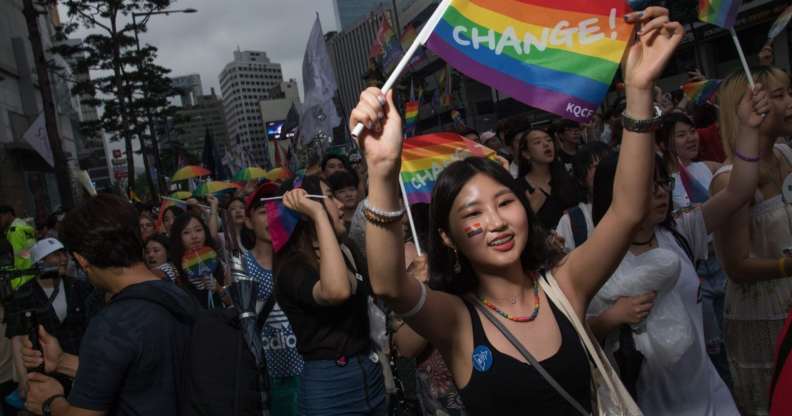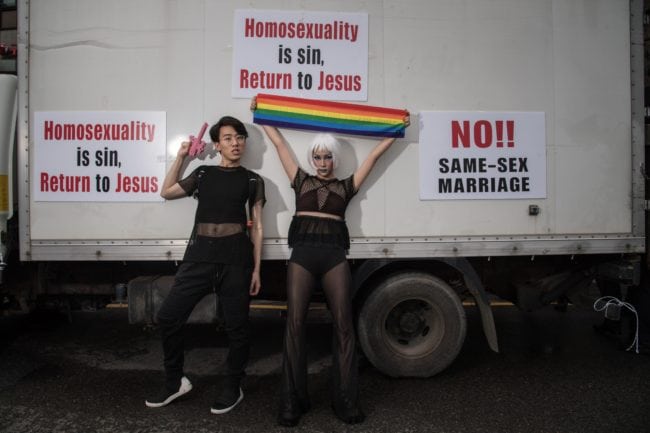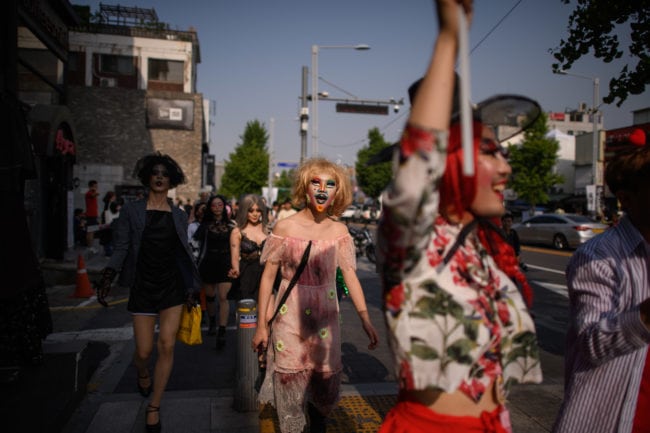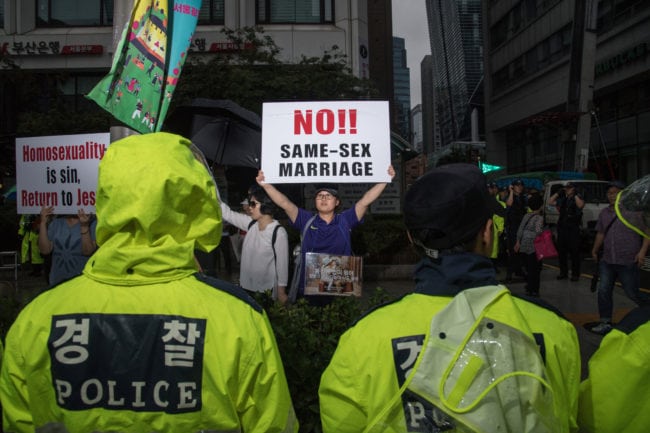Anti-gay pride petition signed by more than 200,000 people in South Korea

Pride in Seoul, South Korea. (ED JONES/AFP/Getty Images)
More than 210,000 people have signed a petition posted on the website of South Korea’s presidential office calling for a gay pride festival to be cancelled.
The Seoul Queer Culture Festival is in its 19th year and is set to take place on Saturday, with a parade near the historic Seoul Plaza as the main attraction.
“We are not discriminating against sexual minorities, but Seoul Plaza belongs to all citizens,” the petition states.
“We do not want to see their abominable events in a square where we should be able to rest and relax,” it continues.
“Every year, queer-themed events such as street performances, drinking and smoking are called ‘cultural festivals’, but they are just occasions filled with illegal acts and hypocrisy.”

Participants pose in front of anti-gay slogans during a pride march in Seoul in 2017
(ED JONES/AFP/Getty)
Homosexuality is not illegal in South Korea, but the LGBT community still faces stigma and discrimination, particularly from conservative groups.
The office of President Moon Jae-in is required to answer the petition now it has reached the threshold of more than 200,00 signatures in less than 30 days.
Ten foreign missions will join the LGBT Pride festival on Saturday, including the US Embassy, as well as the National Human Rights Commission.
Tens of thousands of revellers are expected to participate in the event.

Seoul held its first drag parade this year (ED JONES/AFP/Getty)
“The festival saw only about 50 participants in 200, when it was inaugurated, but some 50,000 last year and more expected this year,” the organisers said.
The Daegu Queer Culture Festival, which is also being protested against by religious and anti-LGBT groups, was first held in 2009.
In May, South Korea held its first drag queen parade, hailed by activists as a milestone for the conservative country.
Yang Heezy, one of the organisers of the parade, told AFP: “When it comes to South Korea, human rights guarantees for sexual minorities are insufficient.

Anti-LGBT campaigners hold signs during a gay pride march in Seoul in 2017 (ED JONES/AFP/Getty)
“Today’s drag parade and more queer culture festivals should take place to bring attention to sexual minorities and help those who are not from those minorities learn more.”
LGBT rights are a work in progress in South Korea, where same-sex marriage and adoption are prohibited and protections against discrimination remain limited.
South Korea’s military penal code bans homosexual activity in the army and campaigners have recently highlighted the prosecution of gay soldiers under the law, in what they describe as a witch hunt.
The country’s president Moon Jae-in, who was elected in 2017 after the impeachment of Park Geun-hye, has previously said he was “opposed” to homosexuality.

